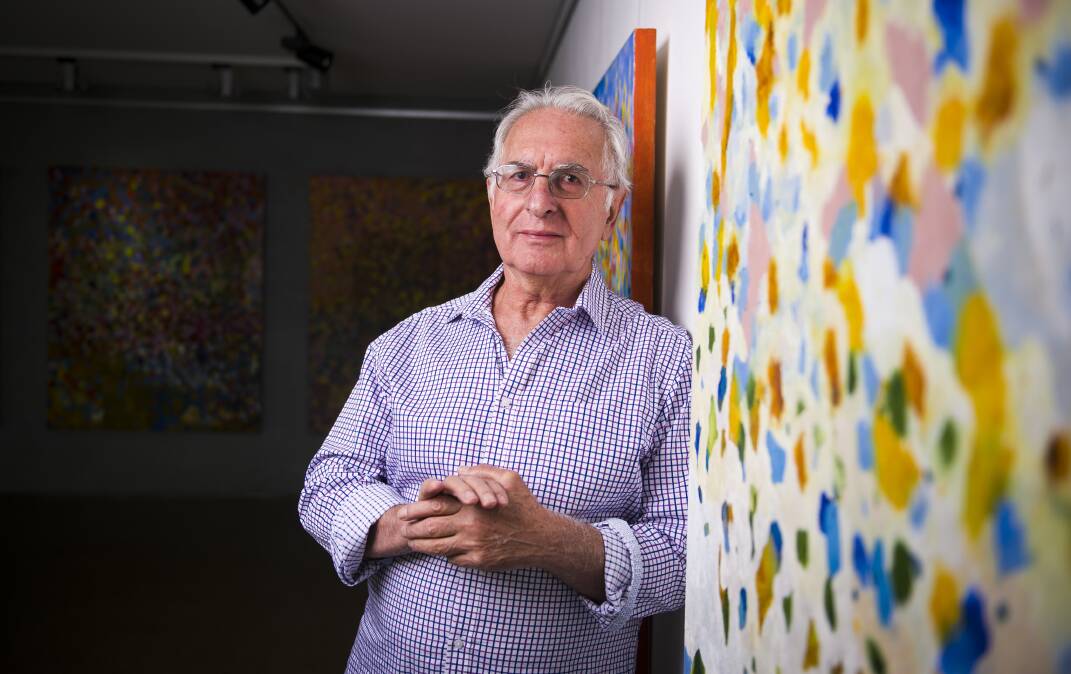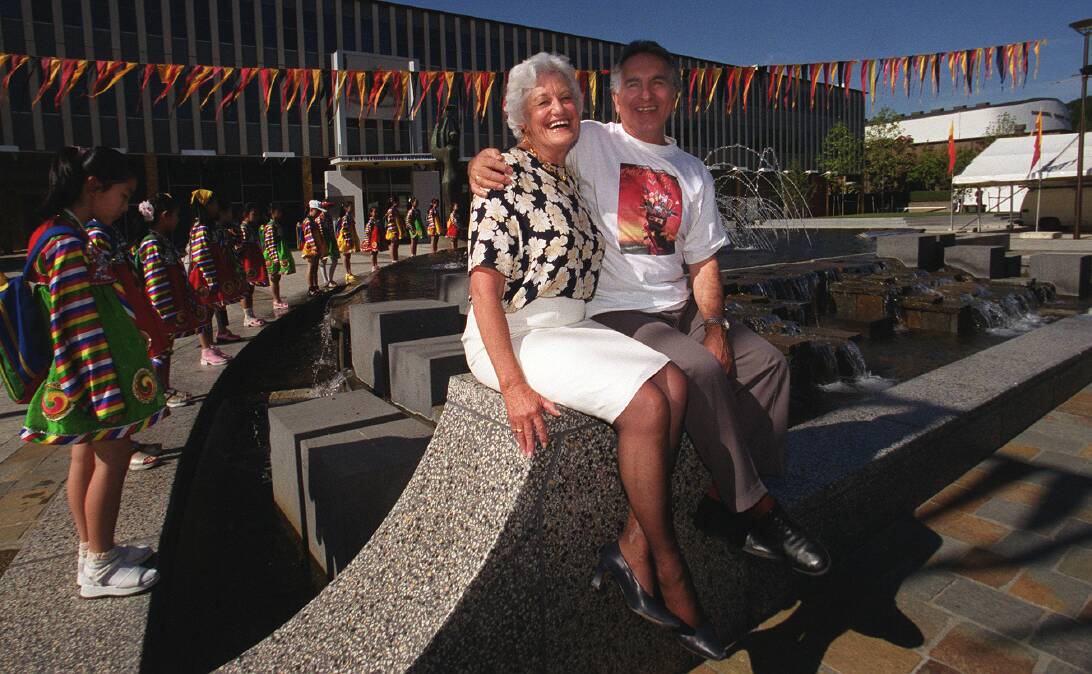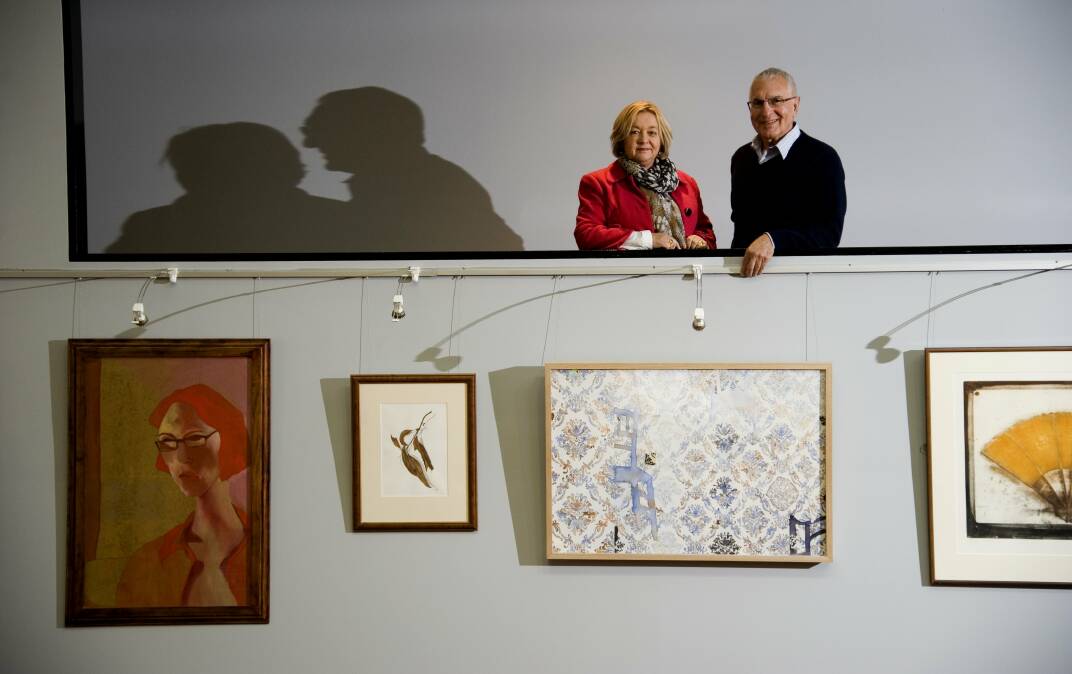Domenic Mico, an artist, director, activist, critic and playwright who was the driving force for more than half a century behind countless efforts to celebrate and promote the arts in Canberra, has died. He was 76.
Mr Mico's death on September 12 was announced by Arts Minister Tara Cheyne on Wednesday.
The cause of death was a large stroke, a family representative said.
Ms Cheyne said Mr Mico had contributed immensely towards the vibrancy and diversity of Canberra, across roles including National Multicultural Festival director, Tuggeranong Arts Centre director and owner of Smith's Alternative Bookshop in Civic.

Domenic Salvatore Mico was born in the Calabria region of Italy on December 8, 1946, and arrived in Australia with his mother in 1954. The family settled, along with Mr Mico's father who had arrived earlier and worked in Queensland, in Queanbeyan, before moving to Canberra in 1956.
Mr Mico's childhood was spent in Narrabundah, which he remembered in 2014 as a neighbourhood of "thin-skinned fibro homes, coloured like lipstick counters at a chemist shop". His father, of Calabrian farming stock, tended a yard of tomato vines, hot chillies and pumpkins growing wild among the wattle.

''Italians stuck closely together,'' Mr Mico once said of the era. ''One of the beautiful things was you would visit other families and always take a bottle of liqueur, which you never drank."
Mr Mico, a student of St Benedict's Primary School and St Edmund's College, went on to study at the Canberra School of Art, where he later taught, and became involved in the city's theatre scene in the 1970s.
During his long career in community arts he founded the Canberra Day celebrations that became the Canberra Festival, Blue Folk Community Arts Association at Strathnairn in 1973, Tuggeranong Arts Centre and the National Multicultural Festival.

Mr Mico became involved with Canberry Fair as an "artistic director type of person", as he once put it. The theme park - part historical village, zoo, theatre and dining precinct - was an important part of professionalising the capital's theatre scene, he said in 2011.
Mr Mico was known to perform as Giuseppe the clown. On Melbourne Cup Day one year, Giuseppe ran a book and then ''ran off'' with all the money. ''It was just what Canberra needed,'' Mico said of Canberry Fair more than a decade ago.
The National Multicultural Festival was Mr Mico's idea, and he served as the artistic director between 1997 until he resigned in 2009.
On the 10th anniversary of the festival, Mr Mico said he knew it had potential to grow but never in his wildest dreams did he anticipate one-third of the capital would celebrate as part of the festival.
"I remember years ago we had a group of Zulu kids, dancers from South Africa. Somebody said to me, 'If I want to see South African dance, I will go to South Africa.' They had missed the whole point and when this troupe, especially the kids, walked into Civic Square and started dancing, I cried, as simple as that. Because here is your own urban environment which you are so familiar with you have introduced to it another spirit we wouldn't usually see," he said in 2007.
In 2018, Mr Mico said he hadn't been to the festival in a while. It had become "a celebration of communities with food on a stick", he said.
Mr Mico unsuccessfully ran for the Senate as an Australian Democrats candidate for the ACT in 1993, and again as a Democrats candidate for the Legislative Assembly in the 2001 election.
In 2001, The Canberra Times named him as one of the 75 people who had shaped the national capital. Mr Mico was awarded a Centenary Medal in 2001, an Italian knighthood in 2005 and a Medal of the Order of Australia in 2018.
Ms Cheyne awarded Mr Mico the inaugural ACT Multicultural Lifetime Achievement Award last month, in testament, she said, to Mr Mico's dedication to cultural and artistic enrichment over the last 50 years.
Mr Mico's family said in a statement his energy was contagious and it was hard to imagine a world without his laughter and cheeky smile.
"Domenic fundamentally loved people, regardless of where they came from, what they looked like or who they loved," his family said.
"Domenic believed in the best of humanity and the world. He knew we all have more in common with other people than we have differences.
Mr Mico's family said art and culture were his passion and he loved Canberra, which he made into a more vibrant and inclusive place.
"Every family gathering, without fail, would see Domenic bring along someone who didn't have their own family to spend time with," his family said.
"This habit summed up Domenic perfectly: generous, warm and a man who truly believed, 'the more the merrier'.
"The world is a much dimmer place without Domenic in it and we acknowledge how lucky we were to have him in our lives and our family."
Mr Mico is survived by his wife Vicki, children Rocco, Kama, Nicholas and Sophie, and siblings Rina, Anna, Johanna and Tony.







